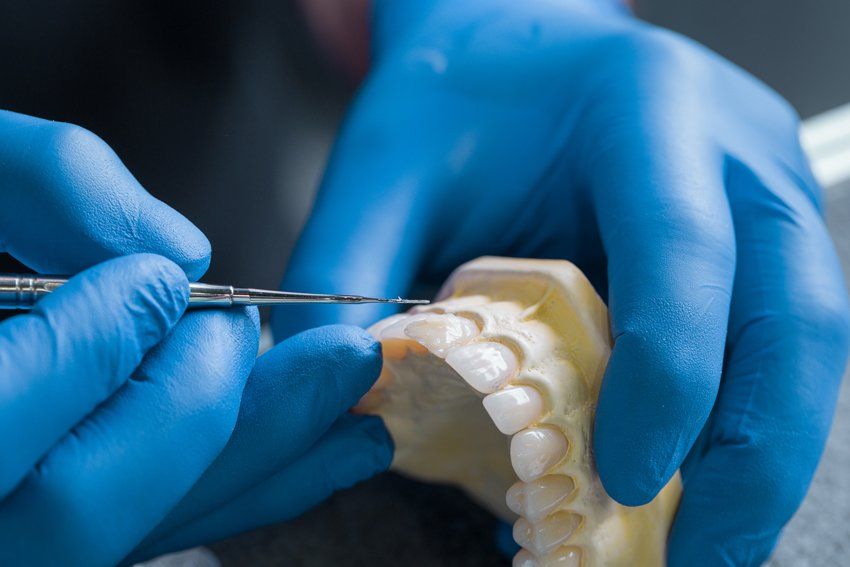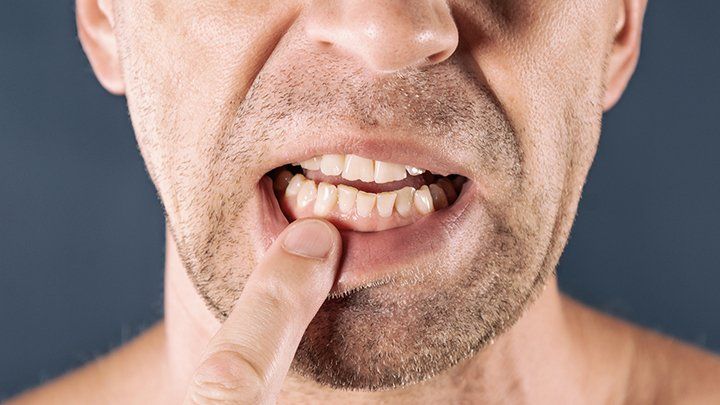Your Guide to Save Your Child's Unhealthy Tooth
- By Admin
- •
- 24 Jul, 2019
- •

Baby teeth (or non-permanent teeth) require the same level of dental care as permanent, or adult, teeth because baby teeth have multiple important functions. Not only do they assist your child with eating, chewing, and talking, but they also promote the proper placement of your child's adult teeth.
When your child prematurely loses a baby tooth, it puts your child's other teeth at risk of becoming crooked or crowded, and it may cause issues with their speech and language development.
If your child has a rotten tooth, you should explore options that can help save the tooth, rather than pulling it. Here's what you need to know about saving your child's unhealthy tooth.
When your child prematurely loses a baby tooth, it puts your child's other teeth at risk of becoming crooked or crowded, and it may cause issues with their speech and language development.
If your child has a rotten tooth, you should explore options that can help save the tooth, rather than pulling it. Here's what you need to know about saving your child's unhealthy tooth.
Prompt and Consistent Dental Care Can Help Save the Tooth
Ideally, you should take your child to the dentist before their first birthday. Even if your child only has a handful of teeth, early dental visits help your child become comfortable with the dentist from a young age. These early dental visits can also detect potential issues with your child's teeth before they progress to more severe problems.
A tooth doesn't turn rotten overnight. Instead, it rots away due to the development and untreated progression of plaque. Plaque is sticky and clear, and it combines with bacteria from your child's mouth to eat away at the tooth. Without regular dental visits, you may not even know that your child has plaque until it causes a cavity.
When detected early, cavities are easily treatable. Your child's dentist may be able to apply fluoride to the tooth to strengthen it and reverse the cavity, or they may be able to drill away the decaying portion and fill it. As the tooth decay advances, you'll have to explore more severe alternatives to get it under control.
You may believe that your child will let you know about any serious issue with their teeth. However, remember that children don't always know how to effectively convey that they're experiencing pain.
Pain may manifest as irritability, or your child may not have the vocabulary to tell you that their tooth hurts. Additionally, some cavities are symptom-less until they begin to affect the deeper layers of the tooth.
Some may think that there's no reason to treat a baby tooth because it's meant to fall out. Remember, some baby teeth don't fall out until your child is nearly in their teens. This creates a potentially lengthy period for your child to be without a tooth or suffer from decay-related discomfort.
A tooth doesn't turn rotten overnight. Instead, it rots away due to the development and untreated progression of plaque. Plaque is sticky and clear, and it combines with bacteria from your child's mouth to eat away at the tooth. Without regular dental visits, you may not even know that your child has plaque until it causes a cavity.
When detected early, cavities are easily treatable. Your child's dentist may be able to apply fluoride to the tooth to strengthen it and reverse the cavity, or they may be able to drill away the decaying portion and fill it. As the tooth decay advances, you'll have to explore more severe alternatives to get it under control.
You may believe that your child will let you know about any serious issue with their teeth. However, remember that children don't always know how to effectively convey that they're experiencing pain.
Pain may manifest as irritability, or your child may not have the vocabulary to tell you that their tooth hurts. Additionally, some cavities are symptom-less until they begin to affect the deeper layers of the tooth.
Some may think that there's no reason to treat a baby tooth because it's meant to fall out. Remember, some baby teeth don't fall out until your child is nearly in their teens. This creates a potentially lengthy period for your child to be without a tooth or suffer from decay-related discomfort.
A Root Canal Can Save a Tooth With Advanced Decay
A root canal is a commonly prescribed treatment for teeth that have advanced decay. Many times, the only other option to a root canal is pulling the tooth. When a tooth reaches this point, other options, like filling the cavity or fluoride treatments, aren't usually viable treatments due to the severity of the decay.
Children can undergo root canals, though the procedure does differ slightly than the methods used for an adult root canal. During an adult root canal, the entirety of the pulp in the infected tooth is removed. However, during a root canal for a child patient, only the infected tissue is removed from your child's tooth. This makes the procedure less invasive and painful than its adult alternative.
Once your endodontist has removed the affected pulp from your child's tooth, you can explore options for restoring the tooth. Usually, your dentist will outfit the tooth with a crown to fortify it and restore any loss due to the decay. The crown will help ensure that the tooth remains in your child's mouth until your child loses the tooth naturally.
Concerned that your child may be suffering from plaque? Schedule an appointment with Teresita V. Hernandez, DDS, today for a cleaning and consultation.
Children can undergo root canals, though the procedure does differ slightly than the methods used for an adult root canal. During an adult root canal, the entirety of the pulp in the infected tooth is removed. However, during a root canal for a child patient, only the infected tissue is removed from your child's tooth. This makes the procedure less invasive and painful than its adult alternative.
Once your endodontist has removed the affected pulp from your child's tooth, you can explore options for restoring the tooth. Usually, your dentist will outfit the tooth with a crown to fortify it and restore any loss due to the decay. The crown will help ensure that the tooth remains in your child's mouth until your child loses the tooth naturally.
Concerned that your child may be suffering from plaque? Schedule an appointment with Teresita V. Hernandez, DDS, today for a cleaning and consultation.
A dental emergency can occur quickly. To be prepared in case of an emergency, learn more about sudden dental problems and how to treat them.
If you have avoided going to the dentist for an extended period due to dental anxiety or a dental phobia, read what you can do to remedy the situation.















